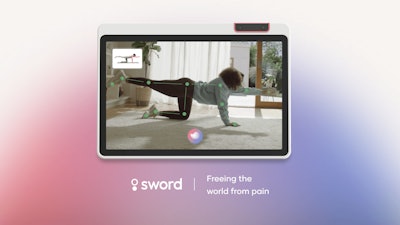
Sword Health, the pioneer of AI Care, artificial intelligence powering the delivery of care, announced today a financing round of $130 million in a mix of primary and secondary sale to provide liquidity to current and former employees and early investors. This brings the total funding to $340 million to date, and the company is now valued at $3 billion—up 50% from its Series D valuation.
Sword Health also introduced Phoenix, the AI Care Specialist, that guides and reacts to members during their sessions through natural conversation, bringing the clinical experience and expertise of a clinician to wherever the patient is. Phoenix, named for its ability to get members back to living vibrant lives, will be integrated across the Sword platform, starting with Thrive, its solution for physical pain, and then into Bloom, its women’s pelvic health care solution, in the coming months.
Globally, billions of people lack access to high-quality care, including two billion people suffering from musculoskeletal issues, and two billion from either pelvic health or mental health conditions. To address these issues, Sword has reinvented the way care is delivered, starting with back, joint, and muscle pain and has expanded to women’s pelvic health issues and sedentariness. The company has delivered over three million AI sessions to members to date and is available to over 10,000 employers across three continents.
Phoenix is the company’s biggest technology leap since it launched its first AI-based care solution in 2015. It is the only AI solution that enables an independent and clinical-grade delivery of care to patients—anywhere, anytime. Phoenix includes:
- Natural conversation: Phoenix always maintains a deep historical knowledge of the patient’s condition and treatment progress, and engages them in dialogue in real time to assess how they are feeling, suggest changes to the session, provide motivation, and more.
- Real-time feedback: As the patient moves through the session, Phoenix monitors their progress through their program while factoring in their verbal feedback. This allows Phoenix to assist in the delivery of the optimal session within the human clinician’s pre-set program parameters.
- Clinical analysis: After each session, Phoenix summarizes the patient’s performance data to identify trends and surface actionable insights and recommendations for the human clinician, making it easier for them to optimize the patient’s progression.
This most recent funding round—which comes on the heels of a year in which Sword nearly tripled its revenue—unlocks even more possibilities when it comes to revolutionizing care delivery and expanding AI Care into new markets and categories.






















